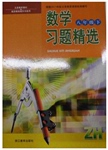题目内容
高三学子要经历各种各样的考试,在考试中难免会遇到失利,这给同学们造成了很大的困扰。针对考试失利问题的利与弊及应对考试失利的做法,请用英语写一篇短文。
注意:
1. 词数120左右,开头语已为你写好,不计入总词数;
2. 可以适当增加细节,以使行文连贯;
3. 文中不得透露个人姓名和学校名称。
Failure in Exams
As we all know, Senior Three students will experience various exams and it is hard to avoid failure sometimes, which greatly upsets them. Recently,
As we all know, Senior Three students will experience various exams and it is hard to avoid failure sometimes, which greatly upsets them. Recently, our class had a heated discussion about failure in exams. Here are the results.
We all agree that there are both advantages and disadvantages of failing in the exam. Generally speaking, it is widely believed that there are several positive aspects as follows. To begin with, it reminds students to devote themselves more to their studies. In addition, it helps students realize what aspects they are weak in, thus leading them to improve.
However, some advantages may arise form failure in exams. Firstly, it ruins students’ self-confidence so badly that some of them even no longer study hard. And secondly, teachers and parents show their dissatisfaction with these students, which makes the matter worse.
Faced with failure in exams, what I usually do is to turn to my teachers for help. They will always analyze my problems and give me some advice on how to deal with them. Their comfort and encouragement mean so much to me.
【解析】
试题分析:该作文是命题作文。文章主题注意条理要清晰,逻辑顺序和结构要恰当,同时要尽量保持简洁精干的内容,不拖泥带水。要注意题中所给的信息,不可偏题,应用文写作对于文章内容的要求是要达到写作目的。尽量保持卷面整洁,字体美观,注意行文的连贯性。使用一些高级句型和词汇提升作文档次。【亮点说明】题目中所给的第一段不看,从第二段开始,首先用了一个宾语从句展开观点 We all agree that there are both advantages and disadvantages of failing in the exam. 我们一致认为,考试失利既有着好处也有着坏处。第二句开头用了分词做状语, Generally speaking一般来说。还用了一个主语从句 it is widely believed that 广泛认为…第四句也是一个宾语从句what做realize的宾语it helps students realize what aspects they are weak in, thus leading them to improve. 它帮助学生们一直到他们的弱项在哪儿,然后引导他们进步。第三段第二句是一个宾语从句it ruins students’ self-confidence so badly that some of them even no longer study hard.它严重的伤害了学生们的自信心,以至于有一些人再也不努力学习了。第三句是一个which引导的非限制性定语从句,which代指前面整个句子, teachers and parents show their dissatisfaction with these students, which makes the matter worse.老师和家长们对这些学生表达出自己的不满,这让情况更加糟糕了。第四段第一句Faced with failure in exams过去分词做状语,也用了一个主语从句what I usually do is to turn to my teachers for help我经常做的就是向我的老师寻求帮助。范文除了使用了一些复杂的从句之外,还用了很多比较好的结构连词和短语。 Both of(两者)都;To begin with,开始;In addition,此外;However然而;arise form引起;Firstly,…secondly第一点…第二点;Faced with面对。。give…advice on,就某事提出建议。
考点:考察命题作文。

 习题精选系列答案
习题精选系列答案